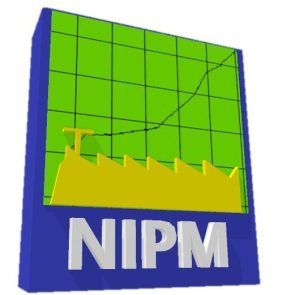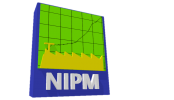TITLE
DESCRIPTION
NIPM Work-Life Balance and Stress Management Course

Nigerian Institute of Production Management (NIPM) recognizes the importance of work-life balance and stress management in achieving professional success and overall well-being. As part of its commitment to developing professionals in production management and related fields, NIPM offers training programs that focus on work-life balance and stress management.

Objectives of the Training
The objectives of the NIPM work-life balance and stress management training are:
– To equip professionals with the skills and knowledge needed to manage work-life balance effectively: Participants will learn how to prioritize tasks, manage time, and maintain a healthy work-life balance.
– To provide professionals with the tools and techniques needed to manage stress: Participants will learn how to identify and manage stress, develop coping strategies, and maintain a positive outlook.
– To promote overall well-being and job satisfaction: Participants will learn how to maintain a healthy lifestyle, build resilience, and achieve job satisfaction.

Course Content
NIPM work-life balance and stress management training covers a range of topics, including:
– Work-life balance: Understanding the importance of work-life balance, identifying priorities, and managing time effectively.
– Stress management: Understanding stress, identifying stressors, and developing coping strategies.
– Time management: Prioritizing tasks, managing time, and avoiding procrastination.
– Self-care: Maintaining a healthy lifestyle, building resilience, and achieving job satisfaction.
– Communication and boundary setting: Communicating effectively with colleagues, managers, and family members, and setting healthy boundaries.
– Promoting a Positive Work Environment: Creating a work environment that supports well-being and productivity.
– Boost Resilience under Work Pressure: Developing strategies to manage work pressure and maintain resilience.
– Developing Coping Mechanisms: Identifying and developing effective coping mechanisms for managing stress.
– Practice Mindfulness and Relaxation Techniques: Learning mindfulness and relaxation techniques to reduce stress and improve well-being.

Benefits of the Training
The benefits of the NIPM work-life balance and stress management training include:
– Improved productivity and efficiency: Participants will learn how to manage their time effectively and prioritize tasks to achieve more in less time.
– Reduced stress and burnout: Participants will learn how to manage stress and develop coping strategies to maintain a positive outlook.
– Improved overall well-being: Participants will learn how to maintain a healthy lifestyle, build resilience, and achieve job satisfaction.
– Enhanced job satisfaction: Participants will learn how to achieve job satisfaction and maintain a positive work-life balance.
Who Should Attend?
The NIPM work-life balance and stress management training is designed for professionals across various levels and disciplines, including:
– Managers, Executives, and Officers: Professionals in leadership positions who want to improve their work-life balance and manage stress effectively.
– Project Managers: Professionals responsible for managing projects and teams.
– Supervisors and Team Members: Professionals who want to improve their work-life balance and manage stress to achieve job satisfaction and productivity.
– Scientists, Engineers, Technologists, and Technical Teams: Professionals in technical fields who want to manage stress and achieve a balance between work and personal life.
– Production/factory workers: Professionals who work in production or factory environments and want to manage stress and improve well-being.
– Customer Service Teams: Professionals who work in customer-facing roles and want to manage stress and improve well-being.
– Other professionals who work under pressure or need to meet deadlines or targets consistently: Professionals who work in high-pressure environments or have demanding workloads and want to manage stress and improve well-being.
Training Methodology
NIPM and Optimum Resources Management, Technology and Engineering Services collaborate to help you learn strategies required to manage stress and achieve a healthy work-life balance. Our training methodology involves a holistic approach, providing participants with practical solutions to reduce workplace stress, improve productivity, and enhance overall well-being.
Our training methodology combines lectures, group discussions, case studies, exercises, experiential, role playing, and video training. Participants will gain both theoretical and practical knowledge.
Outcomes of the Training
By participating in the NIPM work-life balance and stress management training, you will:
– Get to know the practical solutions to reduce workplace stress, improve productivity and enhance overall well-being: Participants will learn how to manage stress and improve productivity.
– Be able to understand, assess and manage stress: Participants will learn how to identify and manage stress.
– Set priorities, manage your time better and work smarter while producing excellent results: Participants will learn how to prioritize tasks and manage time effectively.
– Acquire knowledge, skills, attitudes and behaviours needed to manage your own stress and reduce stress on others in a work environment while sustaining a better quality of life: Participants will learn how to manage their own stress and reduce stress on others.
CONTACT US:
For more information about the NIPM work-life balance and stress management training, please contact us:
Tel./WhatsApp: 08023140750, 08069006671
Recent Posts
About Us
The Nigerian Institute of Production Management (NIPM) as the nation’s pioneer association of production and operations management has been in operation for over 20 years. NIPM is a notable professional development facilitating institution (PDFI).
Recent Posts
- NIPM Partners ADM Nutrition, AACE Foods, OFIL, SeedCo, Ibcon Global
- NIPM – The Global Institute
- School of Operations Management (SOM) – NIPM
- School of Facility, Project, Maintenance, and Engineering Management | NIPM
- School of Logistics And Supply Chain Management (SLSCM) – NIPM
- School of Quality, Health, Safety, Security and Environmental Management
- School of Production and Manufacturing Management
- 2026 SCHEDULE OF CAPACITY BUILDING & TRAINING PROGRAMMES
- Productivity Improvement, Work Ethics and Time Management Course
- Current Good Manufacturing Practice (cGMP) Course | NIPM
- NIPM Schools
- Boost Your Operations Management Career
- Manufacturing Supervisors and Team Leadership Training
- Guide to NIPM Membership Registration
- Guide to NIPM Registration | Training and Educational Programs
- NIPM Customer Care
- NIPM Post Graduate Diploma
- Certificate, Diploma, Advanced Diploma & PGD Programs | NIPM
- Production, Manufacturing and Operations Managers Training & Certification
- NIPM Trains Leading and High – Performing, Reputable Organizations Nationwide
Recent Posts
Recent Posts
Quick Contact
Email: info@nipmnigeria.com.ng
Tel: 08023140750, 08066411565, 08069006671, 09023194157
For Training & Membership
The Registrar
Nigeria Institute of Production Management
Acme House, 23, Acme Road,
Ogba Industrial Estate,
P.O. Box 7798, Ikeja, Lagos, Nigeria
Tel: 08023140750

Leave a Reply